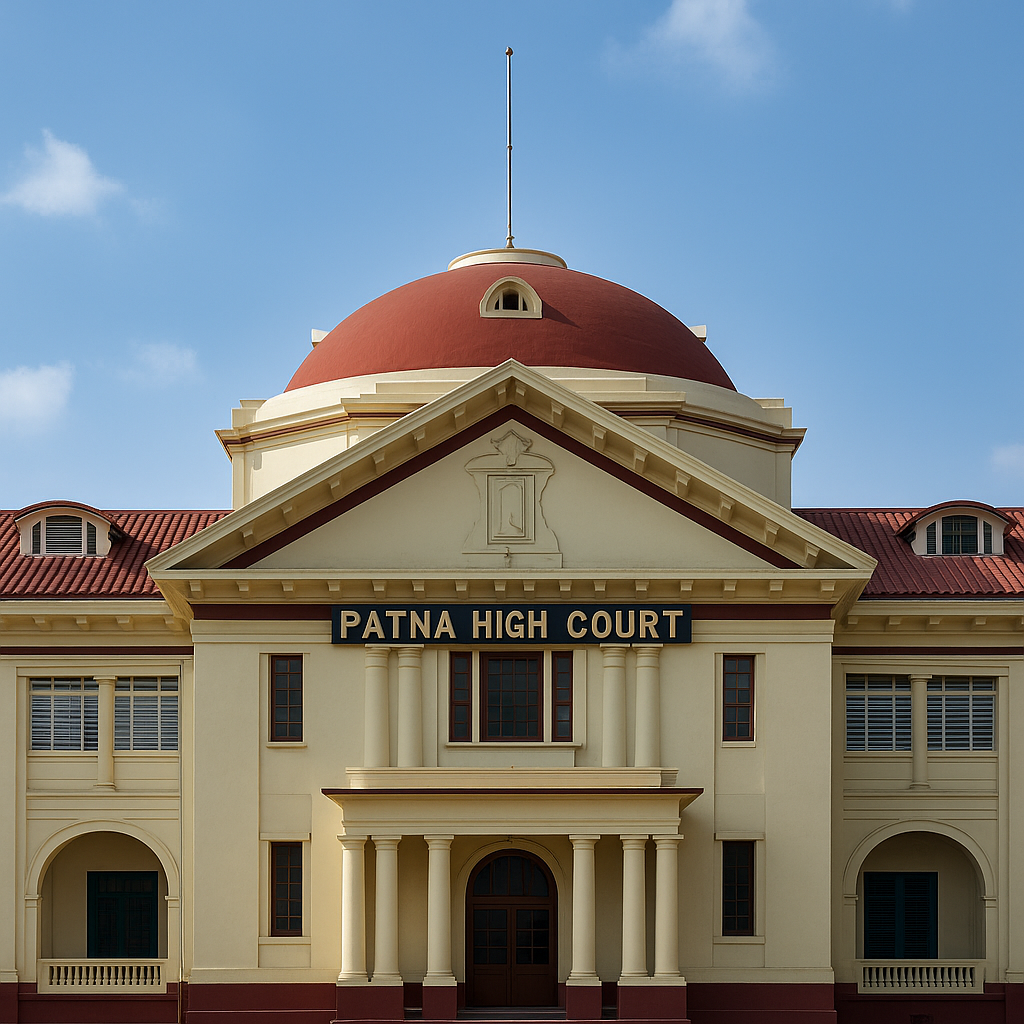Simplified Explanation of the Judgment
In March 2021, the Patna High Court delivered an important judgment concerning industrial subsidies under the Bihar Industrial Incentive Policy, 2011. The petitioner, a private limited company engaged in manufacturing, had approached the Court seeking directions for release of the capital subsidy and other incentives promised by the State Government under the said policy.
The petitioner’s grievance was that, despite fulfilling all eligibility conditions, its application for subsidy was arbitrarily rejected by the Director of Industries, Government of Bihar, through a letter dated 13 October 2017. The rejection was justified on the ground that the proposal lacked “approval from the competent authority.” The company contended that this reasoning was legally untenable because the approval had already been granted by the State Investment Promotion Board (SIPB), which, under Clause 14 of the 2011 Policy, was the competent authority for such decisions.
The petitioner further argued that the decision violated the State’s promise of incentive and was contrary to the principle of promissory estoppel — meaning that once the State had promised certain incentives and industries had invested in reliance on that promise, the government could not later backtrack.
During the hearing, the petitioner’s counsel relied upon a Division Bench judgment dated 29 July 2019 in M/s Sunny Stars Hotels Pvt. Ltd. v. State of Bihar & Ors. (CWJC No. 12104 of 2018), where the High Court had struck down similar rejection orders and directed the government to release incentives within three months.
The State counsel did not dispute that this case was covered by the earlier Sunny Stars Hotels judgment. However, the State sought time to re-examine the petitioner’s case and to take a fresh decision in accordance with law.
After hearing both sides, Hon’ble Mr. Justice Mohit Kumar Shah disposed of the writ petition in line with the earlier Division Bench decision. The Court reiterated that:
- The rejection of subsidy on the ground that it lacked “approval of the competent authority” was arbitrary and without application of mind.
- Under the Industrial Incentive Policy, 2011, the term “competent authority” is not defined separately. Therefore, once approval is granted by the State Investment Promotion Board, no further clearance from the Chief Minister or Cabinet is required.
- The Industries Department cannot invent additional procedural hurdles that are not prescribed in the policy.
- The government is bound by the doctrine of promissory estoppel — having promised incentives to attract investment, it cannot deny those benefits after industries have invested based on that promise.
Consequently, the Patna High Court directed the Principal Secretary, Department of Industries, to take a final decision on the petitioner’s entitlement to capital subsidy and other incentives within three months. The decision must consider the directions given in the Sunny Stars Hotels case and ensure that eligible incentives are granted without delay.
Significance or Implication of the Judgment
This ruling is significant for industrial investors and entrepreneurs in Bihar, as well as for the functioning of government departments:
- It reaffirms the legal binding nature of government policies — once the State issues an industrial incentive policy and investors rely on it, the government is legally obligated to honor its commitments.
- It protects investors’ legitimate expectations, thereby strengthening industrial confidence and promoting ease of doing business in Bihar.
- The judgment discourages bureaucratic delays or arbitrary rejection of subsidy claims by holding officials accountable for non-compliance with declared policy.
- It underscores the judiciary’s role in enforcing promissory estoppel against the government — ensuring that public promises made to promote industry are not withdrawn unfairly.
- For the government, it provides clarity on administrative responsibility — the State Investment Promotion Board (SIPB) remains the ultimate approving body under the Industrial Incentive Policy, 2011.
Legal Issue(s) Decided and the Court’s Decision
- Whether the Industries Department could reject subsidy claims for lack of approval by the “competent authority.”
- Decision: No. The approval of the State Investment Promotion Board is sufficient; no further approval by the Chief Minister or Cabinet is required.
- Reasoning: The Industrial Incentive Policy, 2011, does not define “competent authority” separately, and the SIPB’s approval satisfies that requirement.
- Whether the State can deny incentives after promising them under the Industrial Policy, 2011.
- Decision: No. The government is bound by the principle of promissory estoppel once industries have invested relying on its policy.
- Whether the petitioner’s case falls under the precedent set in M/s Sunny Stars Hotels Pvt. Ltd. v. State of Bihar.
- Decision: Yes. The High Court directed the Industries Department to act in accordance with that ruling and to release the subsidies within three months.
Judgments Referred by Parties
- M/s Sunny Stars Hotels Pvt. Ltd. v. State of Bihar & Ors., CWJC No. 12104 of 2018 (Patna High Court, decided on 29 July 2019).
Judgments Relied Upon or Cited by Court
- M/s Sunny Stars Hotels Pvt. Ltd. v. State of Bihar & Ors., CWJC No. 12104 of 2018 — Division Bench decision applied directly.
- M/s Suprabhat Steel Ltd. v. State of Bihar — for the principle of promissory estoppel.
Case Title
Petitioner v. State of Bihar & Ors.
Case Number
Civil Writ Jurisdiction Case No. 4818 of 2017
Citation(s)
2021(2) PLJR 323
Coram and Names of Judges
Hon’ble Mr. Justice Mohit Kumar Shah
Names of Advocates and who they appeared for
- Mr. S.D. Sanjay, Senior Advocate; Mr. Mohit Agarwal; Mrs. Priya Gupta — for the Petitioner
- Mr. Subhash Prasad Singh, GA-3; Mr. Indeshwari Prasad Mandal (AC to GA-3) — for the State
Link to Judgment
MTUjNDgxOCMyMDE3IzEjTg==-JcVs9YmD9xw=
If you found this explanation helpful and wish to stay informed about how legal developments may affect your rights in Bihar, you may consider following Samvida Law Associates for more updates.








